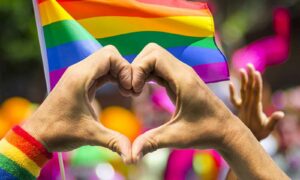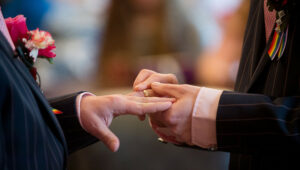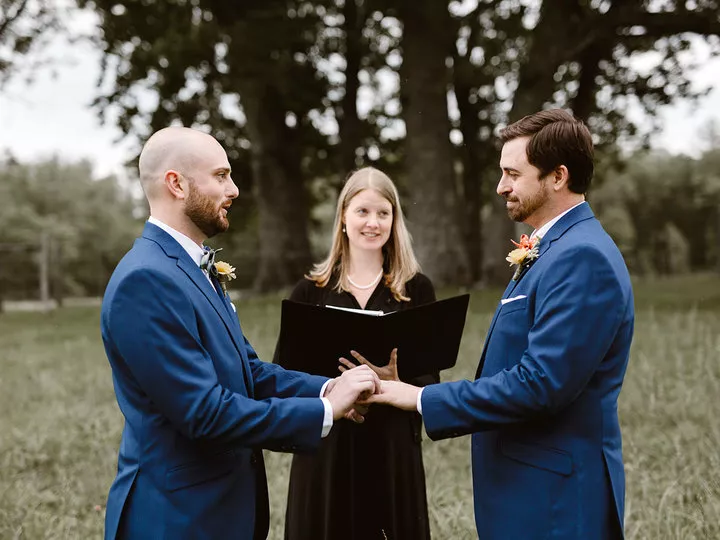In the journey of promoting equality and human rights, the legalization of gay marriage marked a significant milestone across many parts of the world. However, acceptance and legalization were just the initial steps. This new form of union, like any other, comes with its unique set of challenges and difficulties. In this blog post, we aim to shed light on some gay marriage problems that often go unnoticed. We’ll explore socio-cultural, psychological, and institutional issues, among others, with the aim of fostering a deeper understanding and nurturing stronger, healthier relationships within the LGBTQ+ community.
Contents
What Are Some Gay Marriage Problems?
 While it’s important to remember that not every gay couple will experience these issues. As each relationship is unique and influenced by a multitude of factors, there are a number of challenges often faced within gay marriages. This is largely due to societal attitudes and legal frameworks. Here are some of them:
While it’s important to remember that not every gay couple will experience these issues. As each relationship is unique and influenced by a multitude of factors, there are a number of challenges often faced within gay marriages. This is largely due to societal attitudes and legal frameworks. Here are some of them:
Societal and Familial Acceptance
It’s unfortunate but true that prejudice and discrimination still exist in our societies. And this can have a significant impact on gay marriages. Even with legal recognition, gay couples often face stigma and discrimination, both from strangers and from people they know. They may be excluded from social events, face discrimination in their community, or even experience outright harassment.
Moreover, the rejection or lack of acceptance from family members can cause a great deal of emotional distress. Familial acceptance plays a significant role in the emotional health of individuals in gay marriage. The denial or lack of support can lead to conflict, stress, and isolation, which in turn can place a considerable strain on the marital relationship itself.
Self-Acceptance and Mental Health
Internalized homophobia refers to negative feelings, beliefs, and biases about homosexuality within individuals who identify as lesbian, gay, or bisexual. It is a personal struggle that stems from growing up in societies that often privilege and prioritize heterosexuality. This internal struggle can cause a range of mental health problems, from anxiety and depression to low self-esteem and difficulties forming stable, intimate relationships. This self-rejection can also lead to denial and secrecy about one’s identity in a relationship, creating a rift between partners and hampering the growth of a healthy and open relationship.
Legal and Institutional Challenges
Even though gay marriage might be legal in many parts of the world, this legality isn’t universally recognized, which can create significant problems. For instance, a gay couple legally married in one country might not have their marital status recognized in another, creating legal complications in terms of immigration, property rights, and even access to a partner in a medical emergency. Furthermore, there can be difficulties with legal matters such as tax filing, healthcare decisions, and insurance coverage. These challenges can impose a great deal of stress on gay couples, who have to navigate complex legal landscapes. While also managing the typical pressures of marital life.
Parenting and Adoption
 There are significant challenges gay couples often face when deciding to start a family. Some countries or adoption agencies have restrictions on adoption by same-sex couples. And international adoption can be even more complicated due to varying laws regarding homosexuality and same-sex marriage. The process of surrogacy, too, is complex, expensive, and, in many places, laden with legal hurdles. Even after successfully becoming parents, gay couples must often confront social prejudices and stereotypes. That actually questions their capability as parents. For children in these families, it can be difficult to navigate social relationships where their family structure is viewed as “different,” which in turn can impact the familial environment.
There are significant challenges gay couples often face when deciding to start a family. Some countries or adoption agencies have restrictions on adoption by same-sex couples. And international adoption can be even more complicated due to varying laws regarding homosexuality and same-sex marriage. The process of surrogacy, too, is complex, expensive, and, in many places, laden with legal hurdles. Even after successfully becoming parents, gay couples must often confront social prejudices and stereotypes. That actually questions their capability as parents. For children in these families, it can be difficult to navigate social relationships where their family structure is viewed as “different,” which in turn can impact the familial environment.
Economic Discrimination
Even as social attitudes and legal statuses evolve, economic discrimination against gay couples persists. It can range from income inequality (where individuals identifying as gay might earn less than their heterosexual counterparts for the same work) to workplace discrimination, such as being overlooked for promotions or facing a hostile work environment. Housing discrimination is another issue, where landlords or housing societies may refuse rentals or purchases based on the sexual orientation of the couple. These economic challenges can compound over time and exert substantial financial stress on a relationship. Eventually, leading to tension and disagreements between partners.
Sex and Intimacy
Navigating sex and intimacy can be challenging in gay marriages. This is often due to the lack of education and open dialogue around same-sex relationships. Many sex education programs are heavily oriented toward heterosexual relationships. That can leave those in same-sex relationships without crucial knowledge about their own sexual health and well-being. Furthermore, societal taboos and silence around same-sex intimacy can make it difficult for individuals to understand and articulate their own desires and boundaries. And leads to misunderstandings and dissatisfaction within the relationship.
Stereotypes and Roles
Gay marriages often face the challenge of dealing with societal expectations and stereotypes related to gender roles. These heteronormative expectations can impose pressure on partners to conform to traditional “male” and “female” roles within the relationship. For instance, questions about who is the “man” or “woman” in the relationship are not only intrusive but also based on the flawed assumption that a relationship needs to have one partner performing a masculine role and the other a feminine role. This can lead to conflict and tension within the relationship as partners struggle to find an equilibrium that respects their individual identities and preferences.
Lack of Supportive Resources
Many relationship support systems are designed with heterosexual couples in mind. This includes marriage counseling, relationship advice books, and even popular media depictions of relationships and marriages. This can leave gay couples without the resources they need to navigate relationship difficulties and understand their unique experiences within a marriage. In addition, healthcare systems often lack the sensitivity and understanding required to handle the specific challenges faced by gay couples. Ultimately, leading to further isolation and frustration. Efforts are needed to expand these resources and make them more inclusive and supportive of all types of relationships.
These are just a few of the gay marriage problems that couples face. Everyone’s experience is unique, and many gay couples have fulfilling, supportive marriages despite these challenges. However, acknowledging these gay marriage problems is an important step towards addressing them and improving support for all members of the LGBTQ+ community.
How To Cope With These Gay Marriage Problems?
 Coping with these issues requires patience, understanding, and, at times, external support. Below are some strategies to help cope with the challenges within gay marriages:
Coping with these issues requires patience, understanding, and, at times, external support. Below are some strategies to help cope with the challenges within gay marriages:
- Open Communication
Maintaining open and honest communication within the relationship is essential. Sharing feelings, concerns, and aspirations can build a strong foundation of trust and understanding.
- Education and Awareness
Educate yourself and those around you about homosexuality and the unique challenges faced by same-sex couples. This can help counteract stereotypes and misconceptions, and facilitate more supportive interactions.
- Counseling and Therapy
Seek help from professionals specializing in LGBTQ+ issues. Counseling can provide a safe space to express emotions, explore personal issues, and learn coping strategies. Couples counseling can also help navigate relationship difficulties.
- Community Support
Being part of a supportive community can provide a sense of belonging and understanding. Reach out to local LGBTQ+ groups, online communities, or social networks. Shared experiences can offer comfort and practical advice.
- Legal Advice
Understanding the legal landscape is crucial. Seek advice from legal professionals knowledgeable about LGBTQ+ rights to ensure you are aware of your rights and the protections available to you.
- Self-Care
Prioritize mental and physical well-being. Regular exercise, a healthy diet, adequate sleep, and mindfulness activities like meditation can help manage stress levels.
- Advocacy and Activism
Get involved in activism to help create societal and policy changes that benefit the LGBTQ+ community. This can also be empowering and help create a sense of purpose.
- Workplace Rights
If you experience discrimination at work, know your rights. Many countries have laws protecting employees from workplace discrimination based on their sexual orientation.
Remember, every couple’s situation is unique, and there is no one-size-fits-all solution. The most important thing is to stay true to yourself and your relationship and to seek support when needed.
Conclusion
As we navigate the path of understanding and acceptance, it’s crucial to remember that while progress has been made, there are still many hurdles that gay couples frequently encounter. From societal acceptance and internal struggles to legal complexities and adoption issues, the challenges are varied and deeply impactful. Yet, with a blend of open communication, education, counseling, community support, legal awareness, self-care, and advocacy, these obstacles can be effectively managed and overcome.
It’s important to keep the conversation going, encourage inclusivity, and spread awareness. By shedding light on these issues, we can help create a more understanding and supportive society, making way for more love, respect, and equality. Life may sometimes be challenging if you are gay, but Online Gay Counseling can help. Get experienced LGBTQ therapists at PrideMantra: Book a trial LGBTQ therapy session


